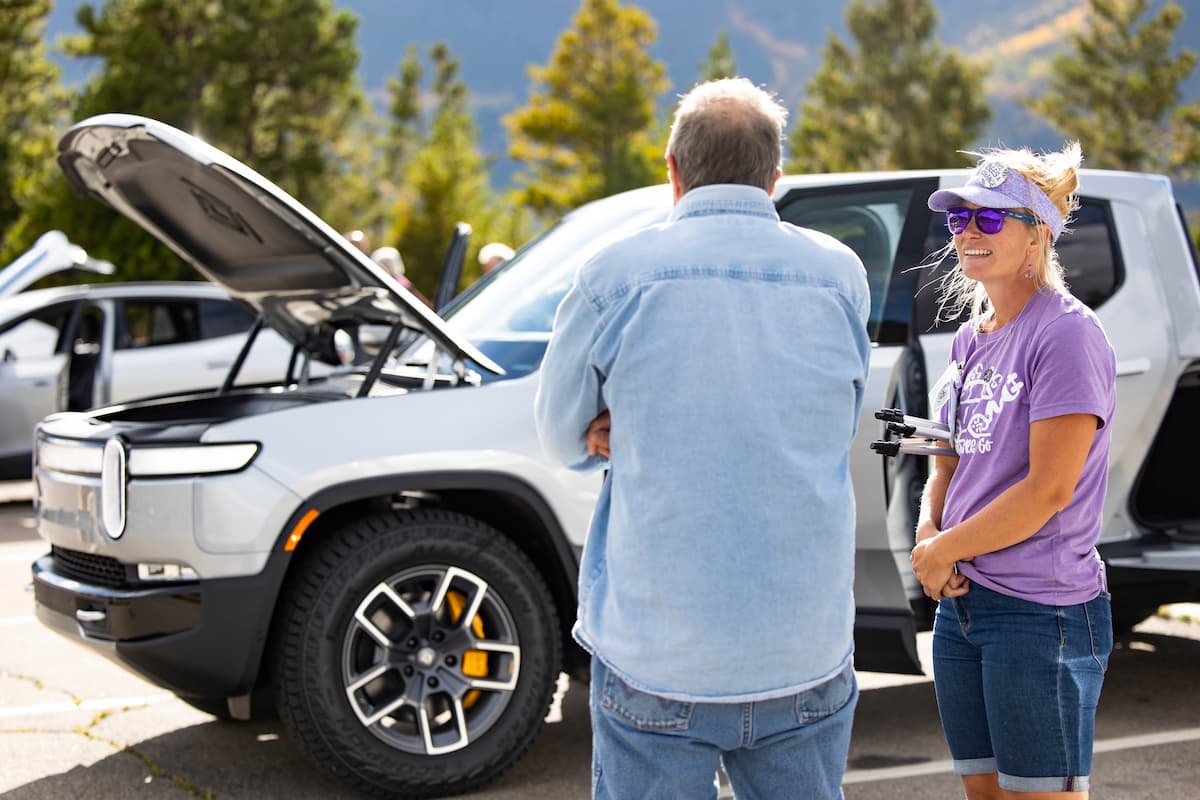
- High Country Conservation
- October 14, 2024
- Ask Eartha
Dear Eartha, I’m thinking about getting a more environmentally friendly vehicle that works with my Summit County lifestyle. I’m torn between a plug-in hybrid and a fully electric vehicle. What are the benefits of each?
Living in the mountains adds a unique twist to choosing any vehicle. With winding roads, snowy winters, and trips through the tunnel, our cars need to handle various conditions. Whether you’re considering a plug-in hybrid (PHEV) or a fully electric vehicle (EV), each option has its benefits and drawbacks – it’s certainly not an easy decision.
PHEV: Best of Both Worlds?
A PHEV has both an electric and gas motor. The battery gives you the option to drive electric for short trips—usually between 20 to 55 miles. This makes PHEVs a good balance for folks who aren’t quite ready to commit to full electric.
Why Choose a Plug-in Hybrid?
- No Range Anxiety: Worried about running out of charge while deep in the backcountry? The gas engine kicks in when the battery’s drained.
- Lower Fuel Costs: You can handle short commutes on electric power, reducing fuel costs.
- Faster Refueling: It only takes a few minutes to fill up at the pump, and you can plug into a charger whenever it’s convenient for you.
- Winter Versatility: In cold climates, batteries lose efficiency. With a PHEV, that’s no biggie—you’ve got gas to rely on when needed.
Potential Drawbacks to PHEVs:
- Shorter Electric Range: The battery’s range is great for daily drives, but you’ll likely rely on the gas engine more often.
- Maintenance Costs: With a combustion engine, you have more moving parts. That means you’ll still have to deal with regular maintenance like oil changes and transmission repairs—things you wouldn’t need with a fully electric vehicle.
EVs: All-Electric, All the Time!
Going fully electric means saying goodbye to gas stations for good. EVs run entirely on electricity – and because grid-supplied electricity is increasingly renewable, they’re a top choice for eco-conscious drivers.
Why go Fully Electric?
- Zero Emissions: EVs don’t have combustion engines, so they produce no emissions- ideal for reducing your carbon footprint.
- Lower Operating Costs: Electricity is cheaper than gasoline, and EVs have fewer moving parts . That means fewer components to wear out and maintain. No oil changes!
- The Driving Experience: EVs deliver power quickly, making them fantastic for climbing steep hills. They also capture energy when braking, which helps extend the life of your brakes and recharge the battery—perfect for those long downhill stretches, like heading to down from the tunnel. And finally, they have quiet operation, and smooth acceleration without traditional transmission shifts. Of course, PHEVs have all these features too, but only when you are driving in electric mode.
Potential Drawbacks:
- Range Anxiety: While range has improved significantly (many EVs now offer 250-300+ miles per charge), long road trips still require careful planning around charging stations. What about winter? Cold weather can reduce range, but your driving habits can help mitigate this.
- Charging Times: Charging an EV isn’t as quick as filling up with gas. Even fast chargers can take 30 minutes or more, so plan for charging stops on longer trips. Fortunately, the number of charging stations is growing, especially around our area.
- Higher Upfront Cost: EVs generally have higher price tags than PHEVs or gas cars, though incentives and lower long-term costs can help balance this out (think no gas, no oil changes, fewer repairs).

What About Incentives?
Fortunately, both PHEVs and EVs come with plenty of incentives to make them cost competitive to traditional combustion engine vehicles:
- Federal Tax Credit: EVs and PHEVs qualify for up to $7,500 in tax credits, provided they meet the requirements.
- State Rebate: Colorado offers up to $5,000 for a new EV or PHEV, with an additional $2,500 for vehicles priced under $35,000.
- Xcel Energy Rebate: Income-qualified residents may qualify for $5,500 for a new EV or PHEV.
- Vehicle Exchange Colorado: Got an old clunker? Income-qualified owners of old or high-emitting vehicles may be eligible to recycle their cars for $6,000 off an EV or PHEV.
- Dealership Discounts: As 2025 models roll in, dealerships may offer discounts on 2024 models.
So, Which is Right for You?
Ultimately, both PHEVs and EVs are excellent options for reducing your carbon footprint. The right choice comes down to your driving habits and needs. Which one fits your lifestyle best?
Ask Eartha Steward is written by the staff at the High Country Conservation Center, a nonprofit dedicated to waste reduction and resource conservation. Submit questions to Eartha at info@highcountryconservation.org.
